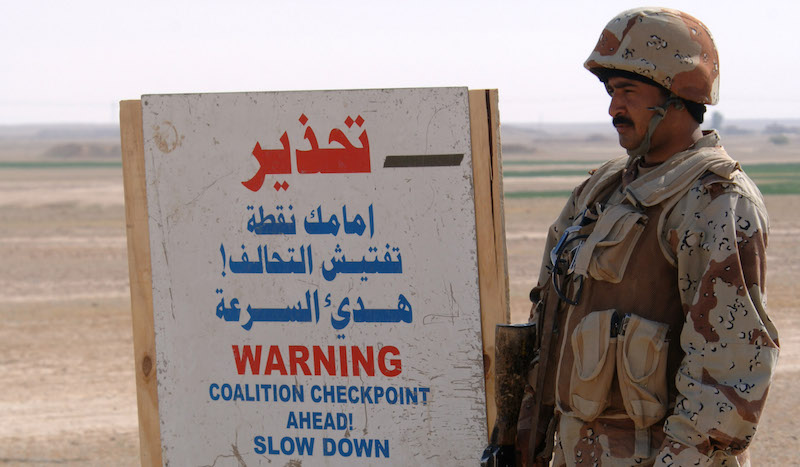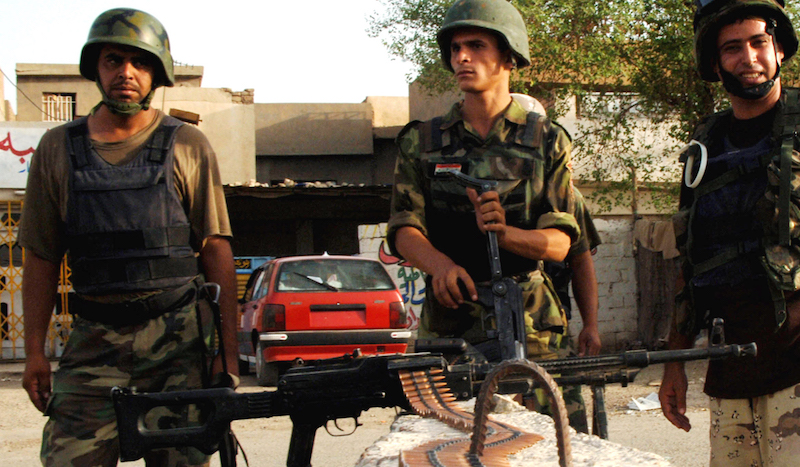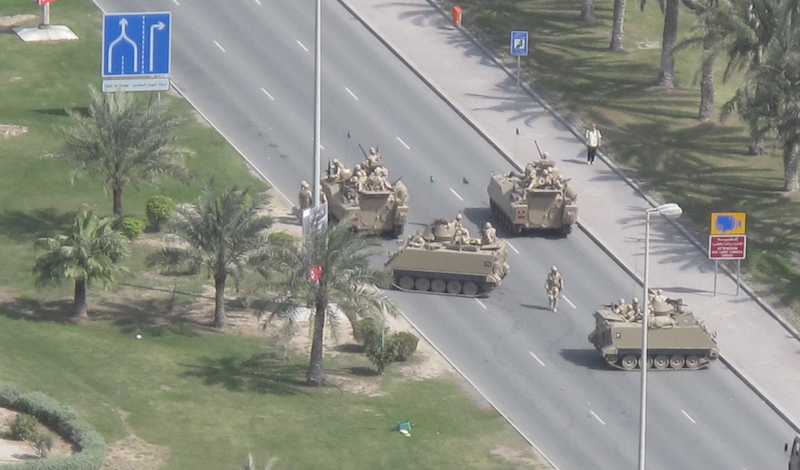Checkpoints are points along roads where military or paramilitary forces screen travelers. Some are allowed to pass through. Some are sent back. Checkpoints are omnipresent in modern conflicts, because they give the occupying force some amount of control over the movement of people and weapons in the area. (Here’s a great New York Times article about checkpoints in northern Iraq in 2018 They can also be useful at the gaming table as a way to force interesting roleplay encounters during travel.
I often struggle with how to represent travel in my games. I want the party’s journey to take some time at the table, because otherwise I fear long-distance travel will start to feel like teleportation. I’ve dabbled with the infamous single random encounter, but it feels artificial. In a 2018 game, my party traveled 150 miles across Corinthian War-era Greece. To give a sense of the distance traveled and the wartime setting, I threw three checkpoints in the party’s way. It worked well. Below are those checkpoints, in a setting-neutral format.

Bored Soldiers Confiscating Goods
Checkpoints are still useful far from the front. Insurgents often try to smuggle personnel and weapons deep into the ‘safe’ parts of the country to conduct attacks where security is lighter. Checkpoints in this safe territory can catch these guys – or at least make it hard to move them in large numbers. Alternately, these checkpoints may be for collecting road taxes or border tariffs. Either way, these soldiers are likely to be bored out of their minds.
Play the checkpoint guards as dismissive and more concerned with appearing thorough than being thorough. They fun lies in having them confiscate something important to the PCs.
“Ma’am, I get that you earned this money legally, but there’s a war on, and we’re collecting ten percent of all paper money we find to fund the war effort. The sergeant over there would be glad to give you a receipt for it; the government will reimburse you when the war is over.”
OR
“Sir, I don’t know what this weird crystal is, but we’re going to confiscate it for safekeeping. Yeah, sure it’s the crystal of Crach’Z’Khorr, and is needed to save the world from an imminent invasion of mole people. Whatever you say, sir. Here’s the address of the complaint department at the Ministry of the Interior. You can get your, ah, crystal back from them, provided you complete the appeals process.”
The players can have fun trying to hide anything confiscate-able from the guards, talking the soldiers into returning it, or stealing it back from them. Most folks at the table probably have their own horror stories dealing with an apathetic bureaucrat, and getting one over on such a character in a game is a pleasant power fantasy.

Ignorant Teenagers Harassing Travelers
War is a young person’s game. And some young people are less mature than others. Giving a bunch of nineteen-year-olds the authority to detain and inspect travelers is just asking for petty abuses. Belittling travelers, half-jokingly asking for passes that don’t exist, demanding bribes, spewing vulgar insults, overreacting to perceived challenges to their authority – some kids just shouldn’t be given that sort of power.
The fun here lies in provoking the PCs into some sort of unwise action, then dealing with the consequences of it. My PCs just offered a bribe to make the abuse go away, but your PCs may be less restrained. If you’re going to use this sort of checkpoint, I recommend writing up some good insults ahead of time, and deciding how the soldiers will react to challenges from the PCs.

The Road is Closed
Some checkpoints aren’t for regulating traffic, but for stopping it. PCs who get too close to the front lines may get turned away by soldiers who don’t want the battlespace cluttered with noncombatant travelers. Other such checkpoints may be part of a picket line. You don’t want the enemy to sneak a march on you, so you establish checkpoints along the roads they’d have to use. Again, PCs are likely to be turned away just to prevent someone from misidentifying them as enemy combatants.
The fun here is in finding a way to circumvent the checkpoint. Particularly social groups may succeed at talking their way through (“We have a message for the general. No, you can’t see it.”), but others may have more luck sneaking past or coming up with some clever scheme. Fighting the soldiers at the checkpoint should be a viable tactic only in settings where the soldiers can’t radio out that they’re under attack. Slaughtering a checkpoint of soldiers in a science fiction setting, for example, should be a great way to attract the attention of the entire army.
–
The final image (of Bahraini forces blocking a road in Manama) is released under a Creative Commons Attribution-Share Alike 3.0 Unported license. Modified from image by author ‘Bahrain in Pictures’.






